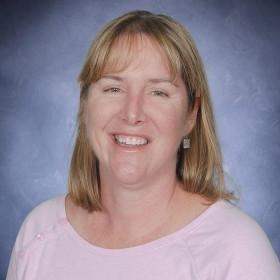Overview
The Biological Science Associate in Science degree serves students intending to transfer to a four-year institution to pursue a bachelor’s degree, with a major field related to biological or biomedical sciences. It is designed to replicate the course schedule for the freshman and sophomore years at a bachelor’s degree granting institution, and with sufficiently high math placement, is fully transferable to the College of Life Science and Agriculture at the University of New Hampshire.
Why Great Bay?
There is the benefit of a small class size, allowing for one-on-one interaction with the professor. Professors in the program have a high degree of expertise in their discipline.
Career Options
- Biological Research Assistant
- Biological Science Teacher
- Pharmaceutical Representative
Related Degrees
Curriculum Outline
The classes and coursework required is as follows:
First Year: Fall Semester
| Course ID | Course | Theory | Lab | Credits |
|---|---|---|---|---|
| ENGL110G / 111G | College Composition I / College Comp I with Lab | 4 | 0/2 | 4/5 |
| BIOL108G | General Biology I | 3 | 3 | 4 |
| MATH150G/152G | College Algebra / Plus | 4 | 0 | 4/5 |
| CHEM115G | General Chemistry I | 3 | 3 | 4 |
| Total Credits | 16-18 | |||
First Year: Spring Semester
| Course ID | Course | Theory | Lab | Credits |
|---|---|---|---|---|
| BIOL109G | General Biology II | 3 | 3 | 4 |
| CHEM116G | General Chemistry II | 3 | 3 | 4 |
| MATH210G | Pre-Calculus | 4 | 0 | 4 |
| ENGL214G | Introduction to Creative Nonfiction | 3 | 0 | 3 |
| Total Credits | 15 | |||
Second Year: Fall Semester
| Course ID | Course | Theory | Lab | Credits |
|---|---|---|---|---|
| Biology Elective | 3 | 3 | 4 | |
| Math/Science Elective | 4/3 | 0/3 | 4 | |
| Math/Science Elective | 4/3 | 0/3 | 4 | |
| Humanities/Fine Arts Elective | 3-4 | 0 | 3 | |
| Total Credits | 15 | |||
Second Year: Spring Semester
| Course ID | Course | Theory | Lab | Credits |
|---|---|---|---|---|
| Biology Elective | 3 | 3 | 4 | |
| Math/Science Elective | 4/3 | 0/3 | 4 | |
| Social Science Elective | 3 | 0 | 3-4 | |
| Open Elective(s) | 3 | 0 | 3-4 | |
| Total Credits | 14-16 | |||
Total Overall Credits: 60-64
*Theory, lab, and credit hours may vary depending on the elective course chosen.
Additional Information
• Students who do not test directly into MATH150G may substitute MATH152G. Students with appropriate test scores may substitute a higher-level course from the Calculus math pathway: MATH210G, MATH230G, MATH235G, MATH250G.
• Students intending to transfer should take care to select courses that will transfer appropriately to their intended institution. Students enrolling in the 1-credit BIOL 200G course will also take one additional 3-credit course to fulfill their open elective requirement.
• Students with appropriate test scores or the appropriate prerequisite may substitute a higher- level course from the Calculus math pathway: MATH230G, MATH235G, MATH250G, MATH265G.
• BIOLXXXG: Depending on program and pathway, students should choose two of the following courses: BIOL210G (Microbiology), BIOL220G (Principles of Genetics), BIOL230G (Ecology), BIOL110G (A&P I), BIOL120G (A&PII).
• Math/Science Elective: Depending on program and pathway, students should choose two courses from the following list: BIOL110G (A&P I), BIOL120G (A&PII), BIOL210G (Microbiology), BIOL220G (Principles of Genetics), BIOL230G (Ecology), CHEM200G (Organic Chemistry), CHEM205G (Biochemistry), MATH230G (Calculus I), MATH235G (Probability and Statistics for Engineering), MATH250G (Calculus II), PHYS135G (College Physics I), PHYS136G (College Physics II), PHYS290G (University Physics I), PHYS295G (University Physics II).
Note: At least two of the five courses taken as Biology and Math/Science Electives must be at the 200 level.
Program Specific Requirements
Students enrolling in Biological Science degree programs must, in addition to meeting the specific pre-requisite requirements for each course, meet the following general, technical standards:
• Students must be able to comprehend the English language, both oral and written, and must have sufficient manual dexterity to produce legible written documents in a timely manner.
• Students must be able to sit or stand at a desk/ laboratory bench, and must possess the necessary focus to stay on task for extended periods of time.
• Students must be able to comprehend and follow instructions in the classroom and laboratory in a timely manner.
• Students must possess the necessary manual dexterity to carry out assigned laboratory tasks.
• Students must be able to perform required classroom and laboratory operations, including mathematical operations, without reference to notes, as directed.
Program Outcomes
Students will be able to:
• Understand theoretical principles across a broad range of sub-disciplines in biological sciences and chemistry.
• Understand and be able to apply principles of mathematics as they pertain to the study of biological science and chemistry.
• Understand and be able to apply the scientific method.
• Understand and be able to execute a wide variety of laboratory techniques in microbiology, biochemistry, cell biology, ecology, genetics, and chemistry.
• Generate and maintain accurate lab documentation, including a laboratory notebook.
• Analyze and draw conclusions from generated scientific data, and present findings both orally and in formal laboratory reports.
• Conduct basic bioinformatics-based analysis.
• Qualify for transfer to a four-year college or university with the necessary foundation in biology, chemistry, and mathematics for upper level study in a wide variety of biological disciplines.







